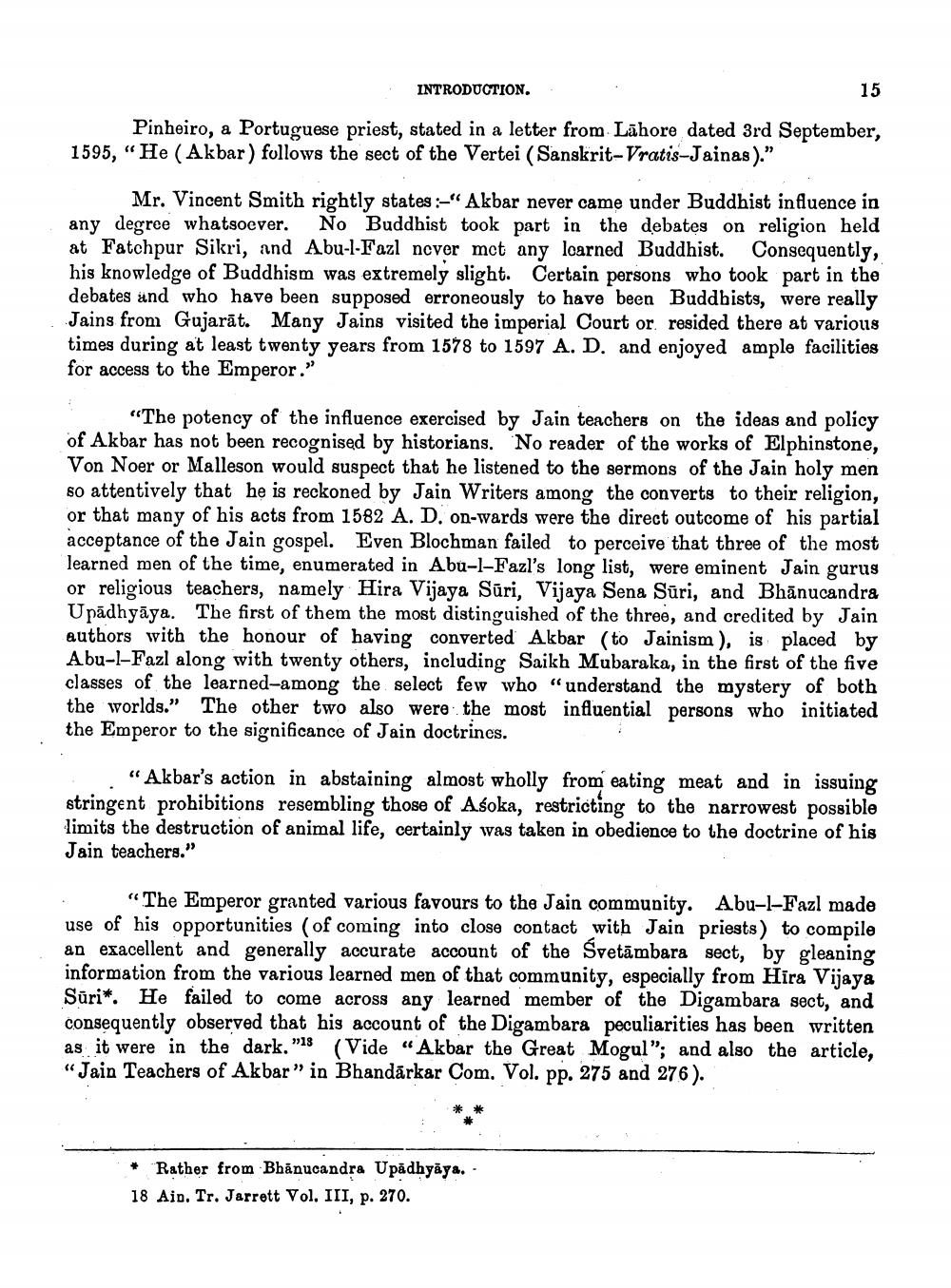________________
INTRODUCTION.
15
Pinheiro, a Portuguese priest, stated in a letter from Lāhore dated 3rd September, 1595, "He (Akbar) follows the sect of the Vertei (Sanskrit-Vratis-Jainas).”
Mr. Vincent Smith rightly states :-"Akbar never came under Buddhist influence in any degree whatsoever. No Buddhist took part in the debates on religion held at Fatehpur Sikri, and Abu-l-Fazl never met any learned Buddhist. Consequently, his knowledge of Buddhism was extremely slight. Certain persons who took part in the debates and who have been supposed erroneously to have been Buddhists, were really Jains from Gujarāt. Many Jains visited the imperial Court or resided there at various times during at least twenty years from 1578 to 1597 A. D. and enjoyed ample facilities for access to the Emperor."
"The potency of the influence exercised by Jain teachers on the ideas and policy of Akbar has not been recognised by historians. No reader of the works of Elphinstone, Von Noer or Malleson would suspect that he listened to the sermons of the Jain holy men 80 attentively that he is reckoned by Jain Writers among the converts to their religion, or that many of his acts from 1582 A. D. on-wards were the direct outcome of his partial acceptance of the Jain gospel. Even Blochman failed to perceive that three of the most learned men of the time, enumerated in Abu-l-Fazl's long list, were eminent Jain gurus or religious teachers, namely Hira Vijaya Sūri, Vijaya Sena Sūri, and Bhānucandra Upādhyāya. The first of them the most distinguished of the three, and credited by Jain authors with the honour of having converted Akbar (to Jainism ), is placed by Abu-l-Fazl along with twenty others, including Saikh Mubaraka, in the first of the five classes of the learned-among the select few who “understand the mystery of both the worlds." The other two also were the most influential persons who initiated the Emperor to the significance of Jain doctrines.
“Akbar's action in abstaining almost wholly from eating meat and in issuing stringent prohibitions resembling those of Asoka, restricting to the narrowest possible limits the destruction of animal life, certainly was taken in obedience to the doctrine of his Jain teachers."
“The Emperor granted various favours to the Jain community. Abu-l-Fazl made use of his opportunities (of coming into close contact with Jain priests) to compile an exacellent and generally accurate account of the Svetāmbara sect, by gleaning information from the various learned men of that community, especially from Hira Vijaya Sūri*. He failed to come across any learned member of the Digambara sect, and consequently observed that his account of the Digambara peculiarities has been written as it were in the dark. "18 (Vide “Akbar the Great Mogul"; and also the article, “Jain Teachers of Akbar" in Bhandārkar Com. Vol. pp. 275 and 276).
* Rather from Bhānucandra Upadhyāya. - 18 Ain. Tr. Jarrett Vol. III, p. 270.




